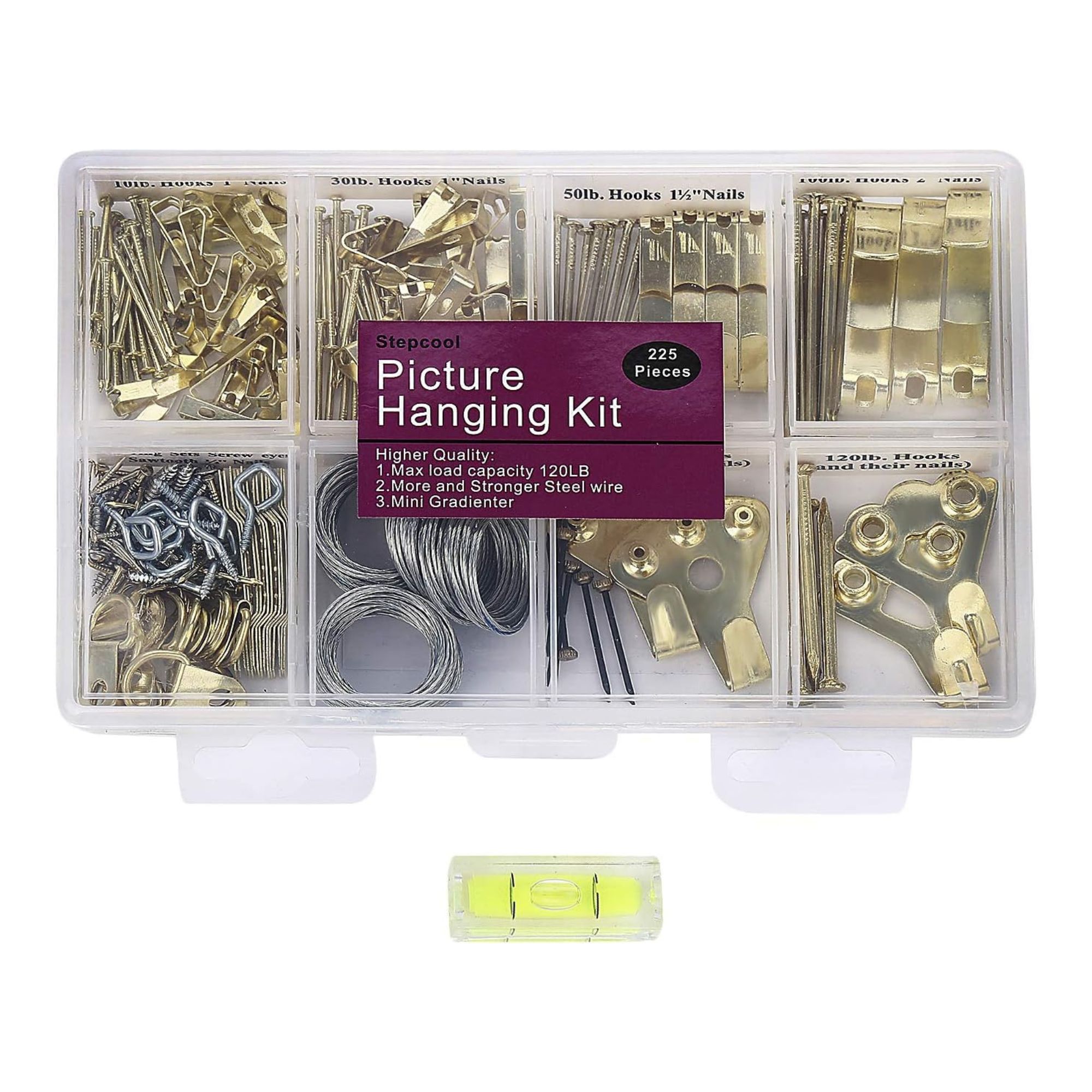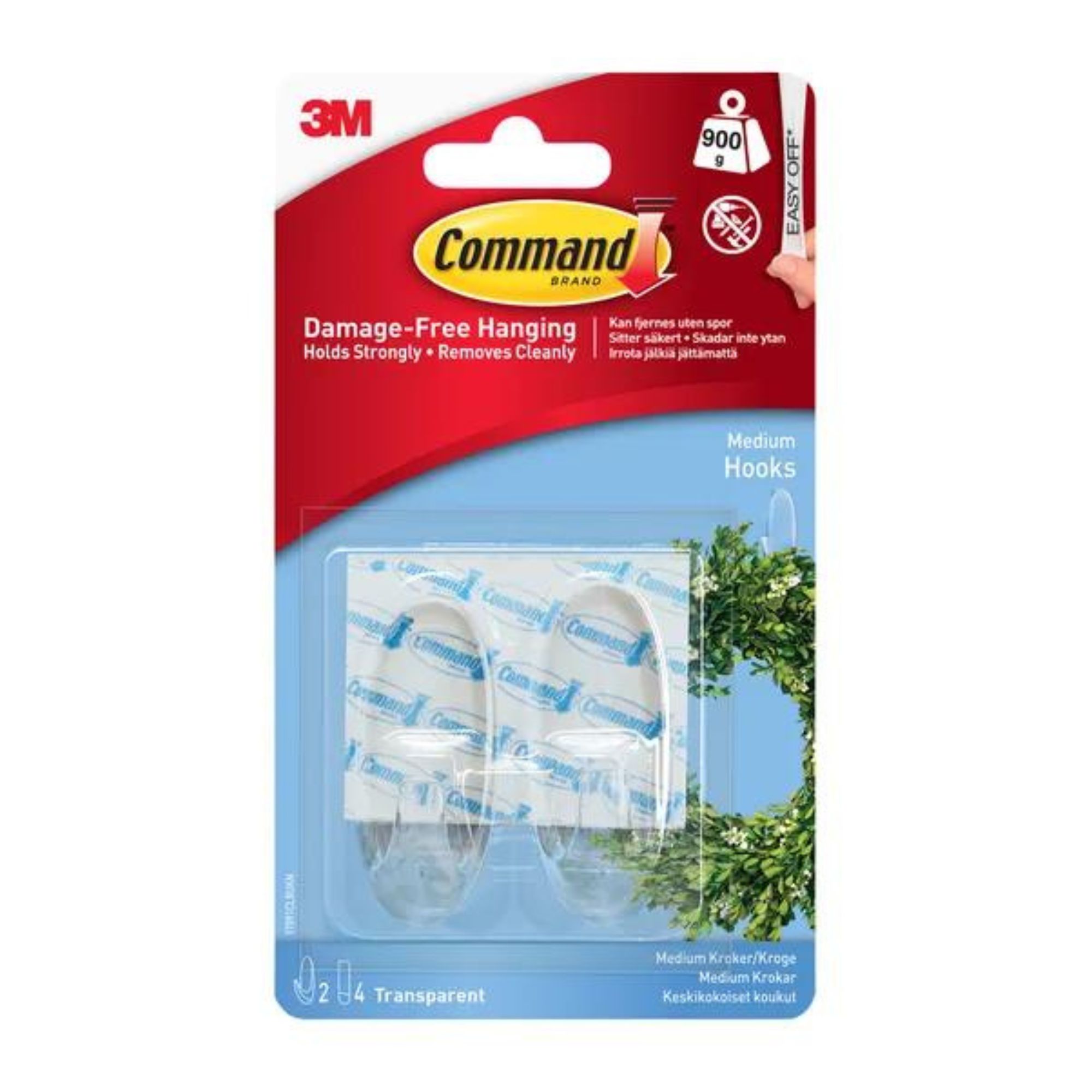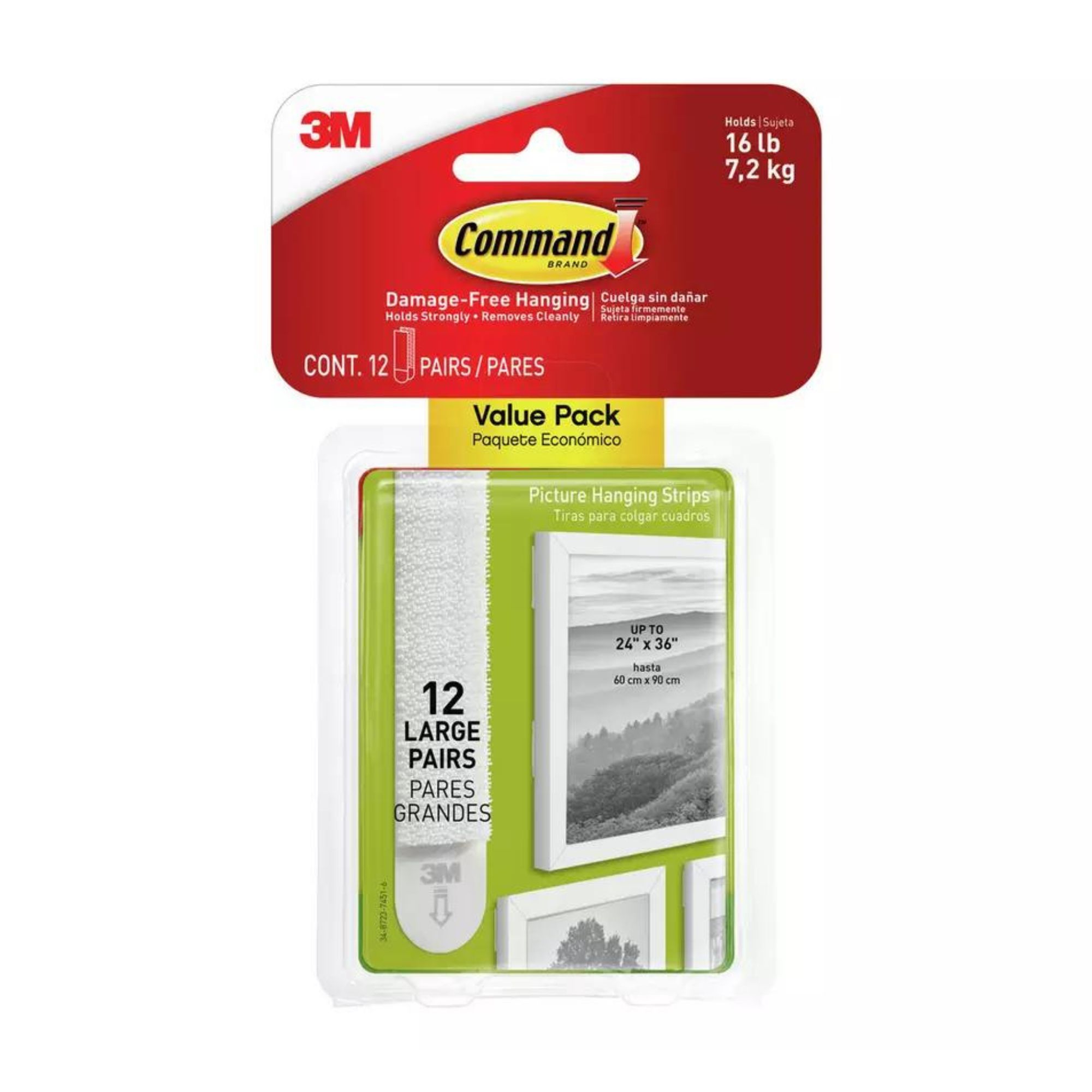How to hang pictures on a wall - a foolproof guide to hanging frames simply and safely
Hanging pictures on a wall isn’t a one-size-fits-all job
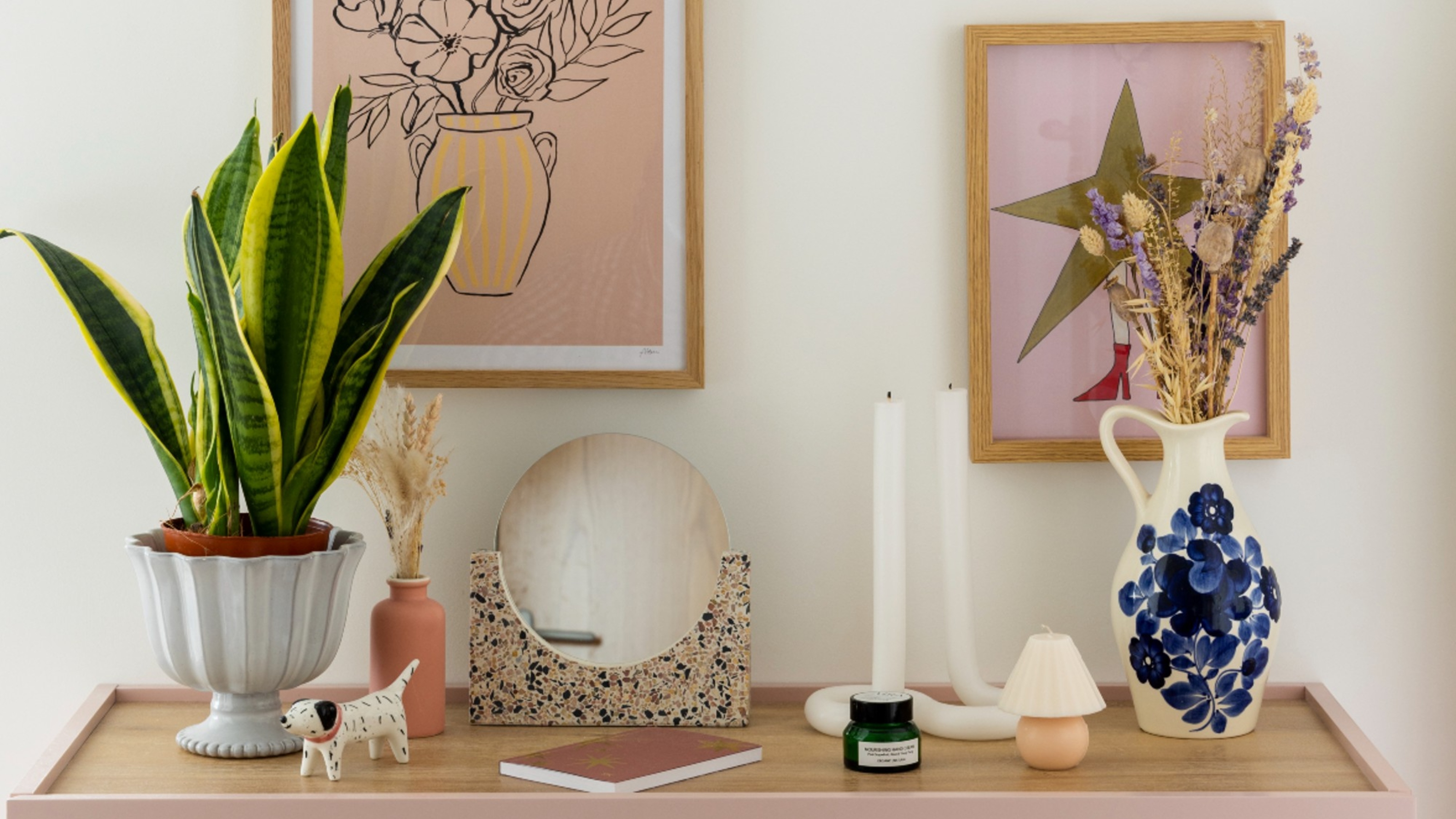

Hanging personal photos or artwork on your walls is a surefire way to add some personality and warmth to your room, but most people don’t know how to hang pictures on a wall. Not properly, anyway.
Whether your dream is to create a gallery wall in your family home or you’re looking for a budget decorating idea for your rented property, hanging pictures on your wall is something we can all get behind. However, there’s a lot to think about when hanging pictures on a wall, ranging from the type of walls you have to the tools you can use and the height you need to hang them.
To take the hassle out of hanging pictures on a wall, we’ve consulted with the experts to come up with a foolproof guide that will answer all of your questions and provide you with the step-by-step process for safe and secure wall decor.
How to hang pictures
‘Enhance the character of your living space by embracing the timeless art of wall decor,’ says Annah Kelly, Styling Expert for Bridgman. ‘Adding additional pictures creates a dynamic interplay of colours, textures, and memories, turning your living room into a canvas of self-expression. This final touch bridges the gap between furniture and atmosphere, bringing harmony and a sense of completion to your living space.’ And this is how you can do just that.
1. Assess your wall
While the process of hanging a picture from a wall is fairly simple, how you do this will ultimately depend on the type of wall you have. Because of this, you must always assess your wall before attempting to hang anything from it - unless you want a hefty maintenance bill to come your way.
Brick walls: If you want to know how to hang a picture on brick walls, you’ll be happy to know that it’s a fairly easy DIY task. As the walls are extremely solid, they can take the weight of any size picture frame. A permanent way to hang pictures on a brick wall would be to drill or hammer into the wall and hang them from a nail. However, a temporary and renter-friendly option would be to use strong adhesive strips or hooks like these Command Picture Hanging Strips Large from Dunelm.
However, it’s important to note that if you’re drilling screws or hammering nails into the wall, you should always make sure that you steer clear of any electrical wires. If you don’t have any sockets nearby, it’s highly unlikely that you’ll drill through any wires. But to be 100% certain you’re not going to damage your electrics, it’s best to use a cable detector - like this Stud Finder Wall Scanner from Amazon.
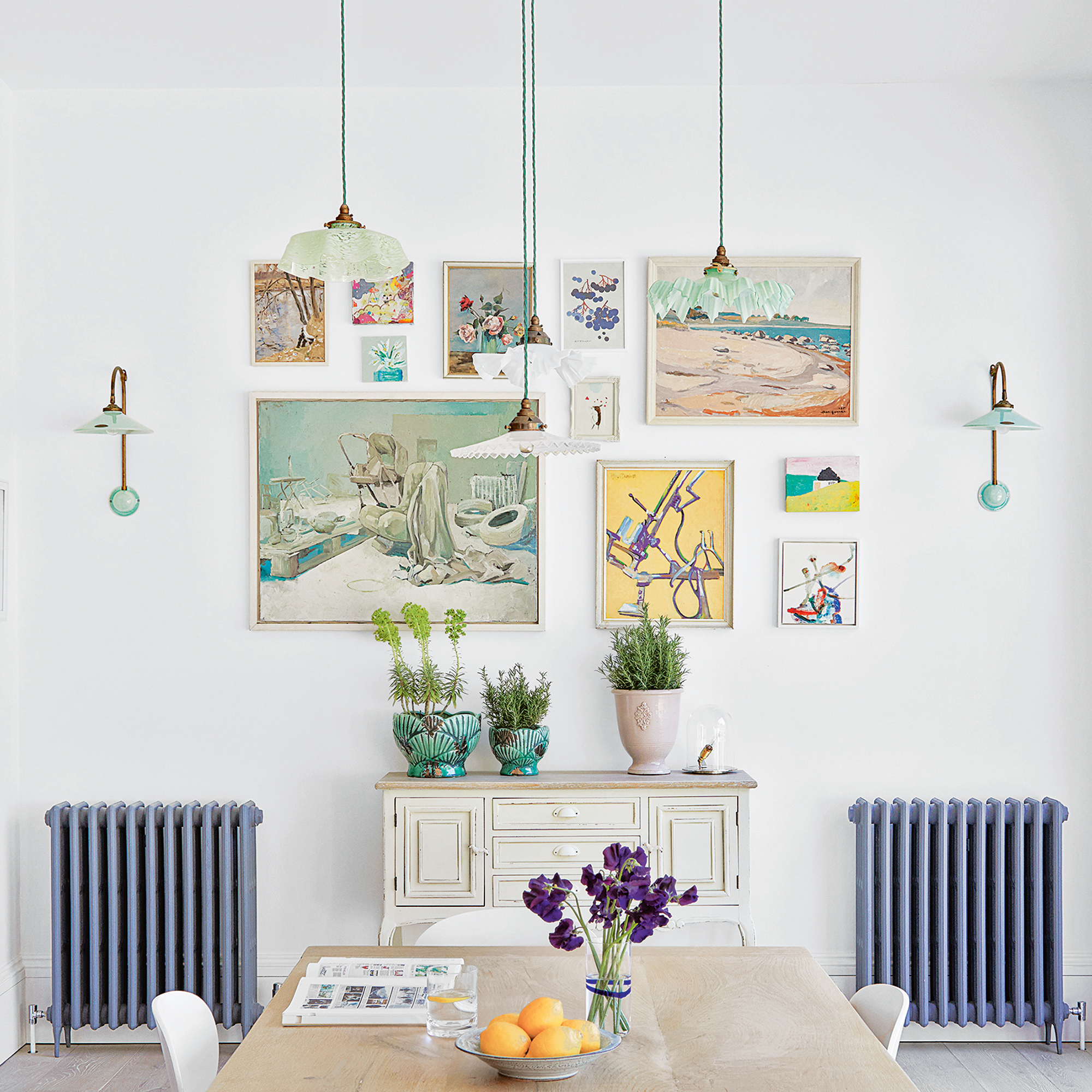
Plasterboard walls: If you have plasterboard walls, you have a trickier job on your hands. The plasterboard isn’t as solid or as strong as brick, which means that you need to choose the correct fixings to ensure your pictures don’t fall down and pull the plaster with it.
Tim Warren, a DIY expert from Adkwik, explains, ‘You may need to use different fixings to hang pictures on plasterboard depending on the weight. Lightweight artwork will be fine with a two-pin picture hook, as long as the plaster is in good condition.’
‘For heavier pictures, you may need to use a stud detector to locate any studs behind the plasterboard. Attaching fixings where the studs are located will be more secure for heavier pictures, and if the plaster is in good condition, you can use a hollow wall anchor or self-drill screw to hang the artwork.’
Alternatively, you could also use Command strips or hooks.
2. Create a plan
Whether you’re looking to bring some living room wall art ideas to life or just looking to hang up some family photos, it’s important to make a plan before you gather your tools. The last thing you want to do is drill unnecessary holes into a wall or waste adhesive strips by accidentally hanging pictures in the wrong place, so this plan can help you complete this household task with ease.
And while you could just choose an empty spot on a wall and hang your picture up there, Hannah Rouch, trends expert at Gumtree, suggests putting more thought into this decision. ‘Think about how you use the room and where you want to see the images you wish to hang,’ she says.
‘For example, if you are looking for a wow statement to anyone entering the room, hang directly opposite the door. Also, consider how light comes into the room. Avoid hanging value pieces in direct sunlight unless you protect the artwork with UV-protective glazing and skip areas above direct heat sources such as radiators.’
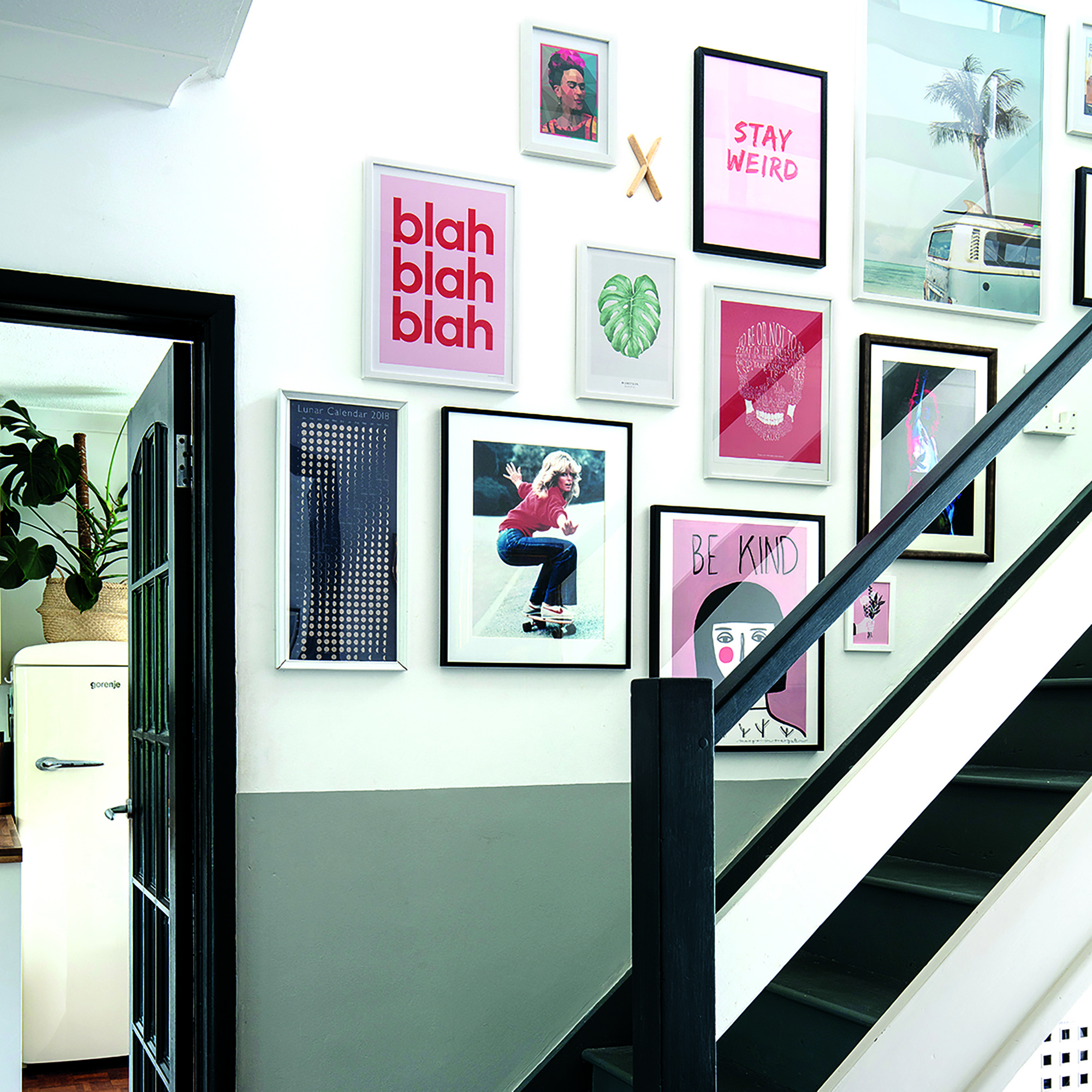
If your intention is to create a gallery wall, however, you’ll need to get a little more involved. Nicole Lambert, Marketing Manager at HelloCanvas, explains, ‘Before you start hanging pictures up, it’s worth laying them out on the floor so you can visualise where you want them to go. Move them around until you’re happy with the layout, if it will be a gallery wall, and then stand on a chair and take a photo. This can give you a good idea of what it would look like on the wall before you start hammering away.’
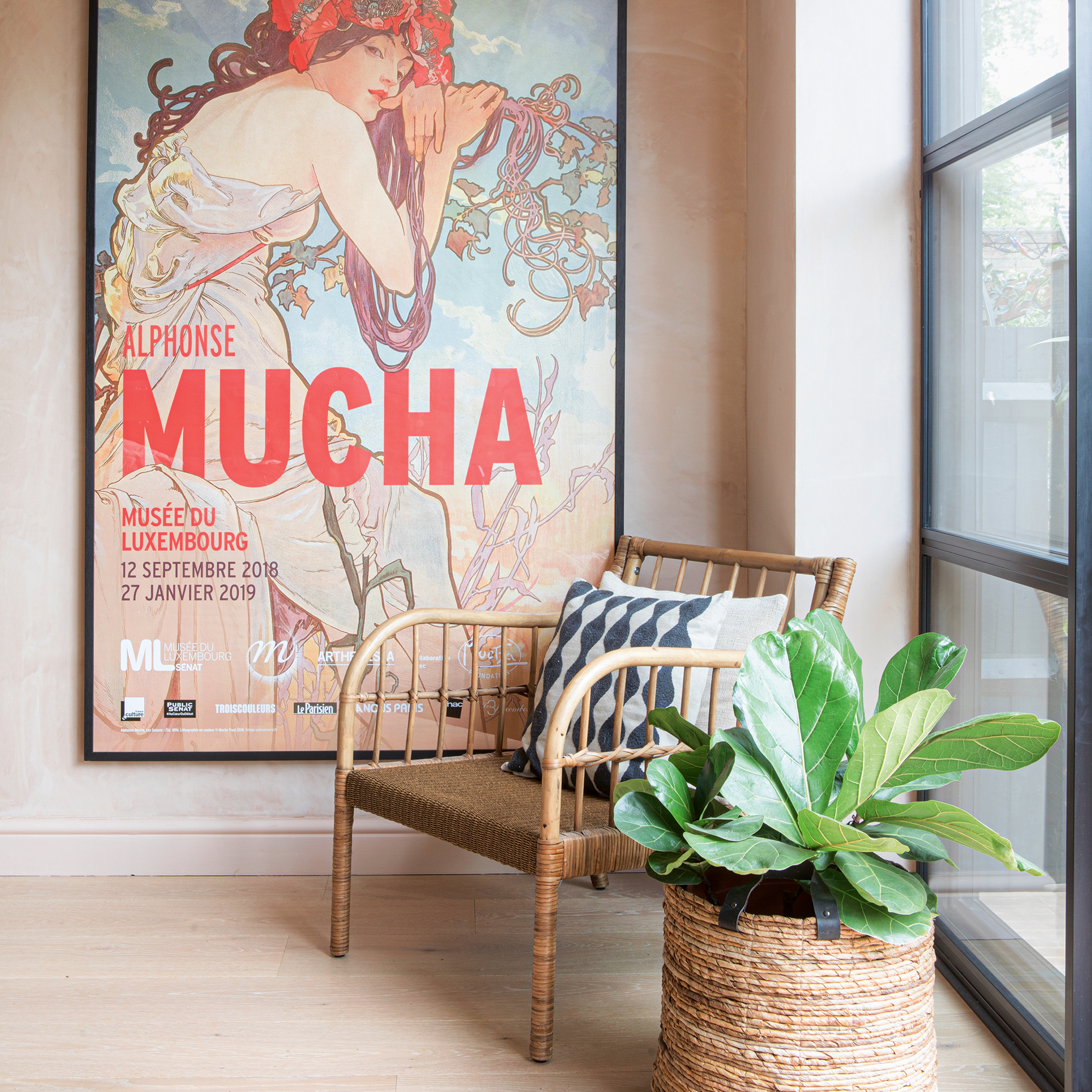
3. Choose your hanging method
When you have a plan in place, you then need to choose your hanging method. There are many different ways to hang pictures from a wall, and ultimately, you need to choose one that works not only for your walls but also for your DIY skills and the pictures you’re hanging. Here are your options:
Use nails and hooks: Nails are also fairly easy to install when you know what type of wall you’re working with. You can then hang the picture frame directly from the nail. Alternatively, you attach two D-rings on either side of the frame and then tie wire or string between these rings. Then, you can hang your frame from the nail using this wire or string. Just remember the fork hack if you’re going to hang pictures from nails.
Use Command hooks: Margaret Lawson from Sustainable Furniture says, ‘Command hooks are a renter-friendly and reliable choice for hanging pictures in your home. These hooks are durable, allowing them to hold a considerable amount of weight while offering a completely damage-free removal. They also come in a clear plastic material, making them barely visible to the naked eye.’
Use adhesive strips: If you don’t want to do any DIY, adhesive strips are the easiest choice for those looking to hang pictures on a wall. However, they do come with their limits. Margaret says, ‘Simply place the strips directly onto your frame and press firmly onto the wall in an area of your liking. These strips can hold roughly up to 8 pounds, so if your frame is particularly heavy, it is best to avoid this method as it can risk damage to the picture itself as well as surrounding people and objects.’
4. Measure the perfect height
If you want to hang pictures like a pro, you also need to measure the perfect height. And what you might not realise is that there are unofficial rules when it comes to the height at which you hang your pictures and artwork.
Margaret explains, ‘For the best results, you should hang your pictures at roughly eye-level. Not only will this look the best on your walls, but it ensures the best view of your picture. It is important to place the centre of the image at eye level, not the top or bottom, and this is roughly anywhere between 57 to 60 inches high.’
However, she has also noted that this is not a one-size-fits-all rule. ‘For homes that have very high ceilings, placing pictures or wall art at eye level could appear out of place. If you have furniture below your picture, then you should always leave a gap of 8-10 inches between the picture and furniture regardless of eye level.’
Because of this, it’s always good to have a tape measure handy whenever you want to hang pictures on the wall. You can then mark where you want to hammer in a nail or stick your adhesive hooks or strips with a pencil before you move on to the next step.
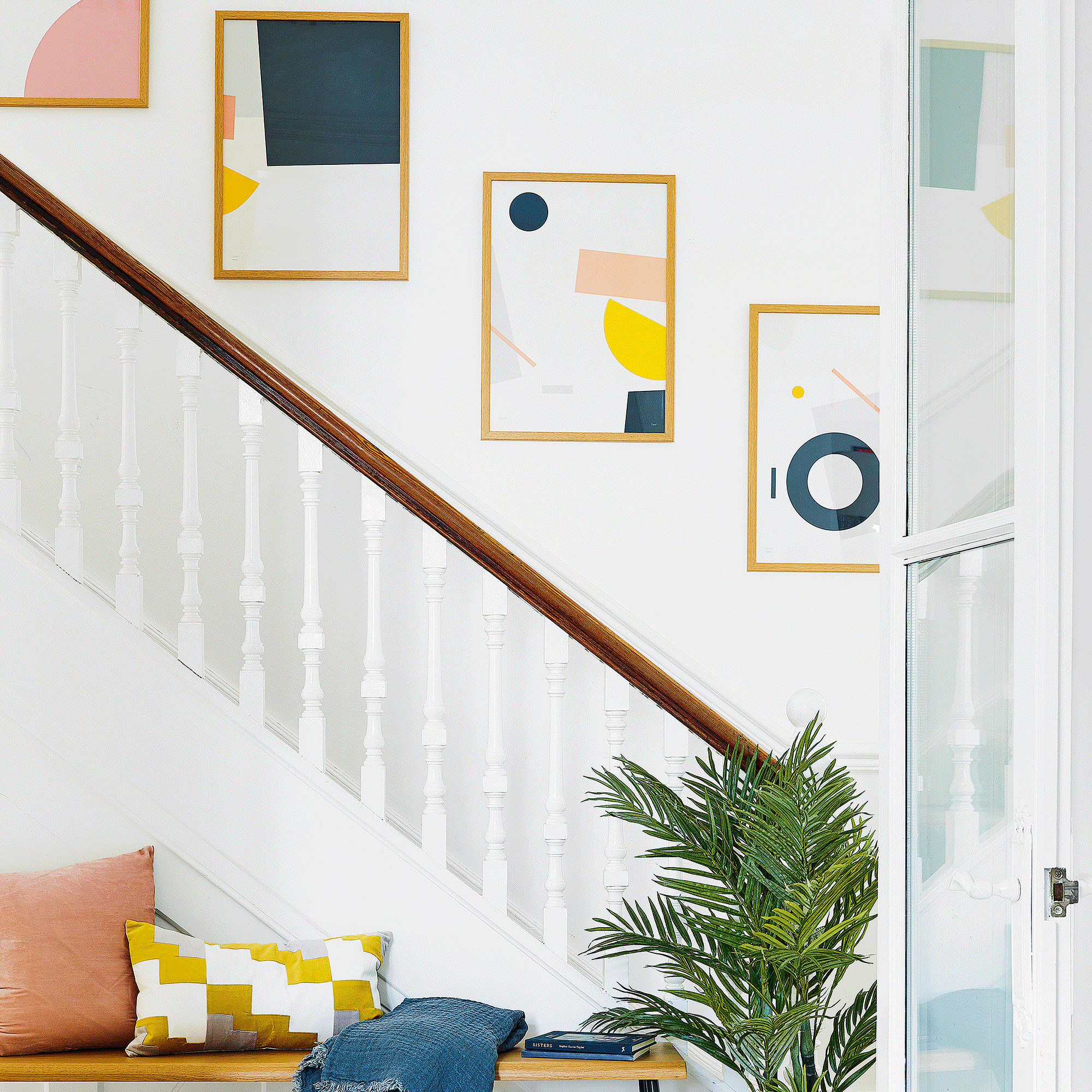
5. Hang your picture
When you’re confident that you know what type of wall you’re working with, where you want to hang your picture, and how you’re going to hang your picture, you can finally get around to the good bit.
Yes, you can then hang your picture on the wall! And when you’ve done that, grab a spirit level to make sure that it’s sitting straight, and then tweak if necessary.
FAQs
What is the proper way to hang pictures on a wall?
The traditional way to hang pictures on a wall is to hang from a nail, but modern inventions mean that temporary, renter-friendly options such as self-adhesive hooks and strips are becoming more and more common.
In general, though, you should always make sure that you hang pictures on a wall at eye level. Once you’ve measured this height, you can then mark the wall with a pencil and use your chosen method to hang the picture.
Of course, if you don’t have the time or DIY capacity to hang pictures on a wall, there are many other ways to display your art. Jonathan Clark, Creative Director of Shelved, explains, ‘For those renting or nervous about hanging pictures on walls, shelving can be a great alternative for showcasing special photos and artwork. When deciding how to organise your frames, try to create a look that’s in keeping with the wider scheme - this allows continuity within your room.’
How do you arrange pictures on a wall?
If you’re creating a gallery wall, you need to choose one main picture or piece of art that will serve as the focal point in the room. When you’ve chosen that picture, you need to hang that in the centre of the wall at eye level.
Then, you need to map out how you want to arrange the rest of them. It’s ultimately up to you how you do this, but it’s always a good idea to test out your thought processes before putting them up on the wall.
You can either lay your artwork out on the floor in front of you in the arrangement of your choosing or use masking tape to map out the frames on the actual wall.
Now you know how to hang pictures on a wall, it’s time to get started!
Get the Ideal Home Newsletter
Sign up to our newsletter for style and decor inspiration, house makeovers, project advice and more.

Lauren Bradbury has been the Content Editor for the House Manual section since January 2025 but worked with the team as a freelancer for a year and a half before that. She graduated with a Bachelor’s degree in English and Creative Writing from the University of Chichester in 2016. Then, she dipped her toe into the world of content writing, primarily focusing on home content. After years of agency work, she decided to take the plunge and become a full-time freelancer for online publications, including Real Homes and Ideal Home, before taking on this permanent role. Now, she spends her days searching for the best decluttering and cleaning hacks and creating handy how-to guides for homeowners and renters alike, as well as testing vacuums as part of her role as the Ideal Home Certified Expert in Training on Vacuums, having spent over 110 hours testing different vacuum models to date!
-
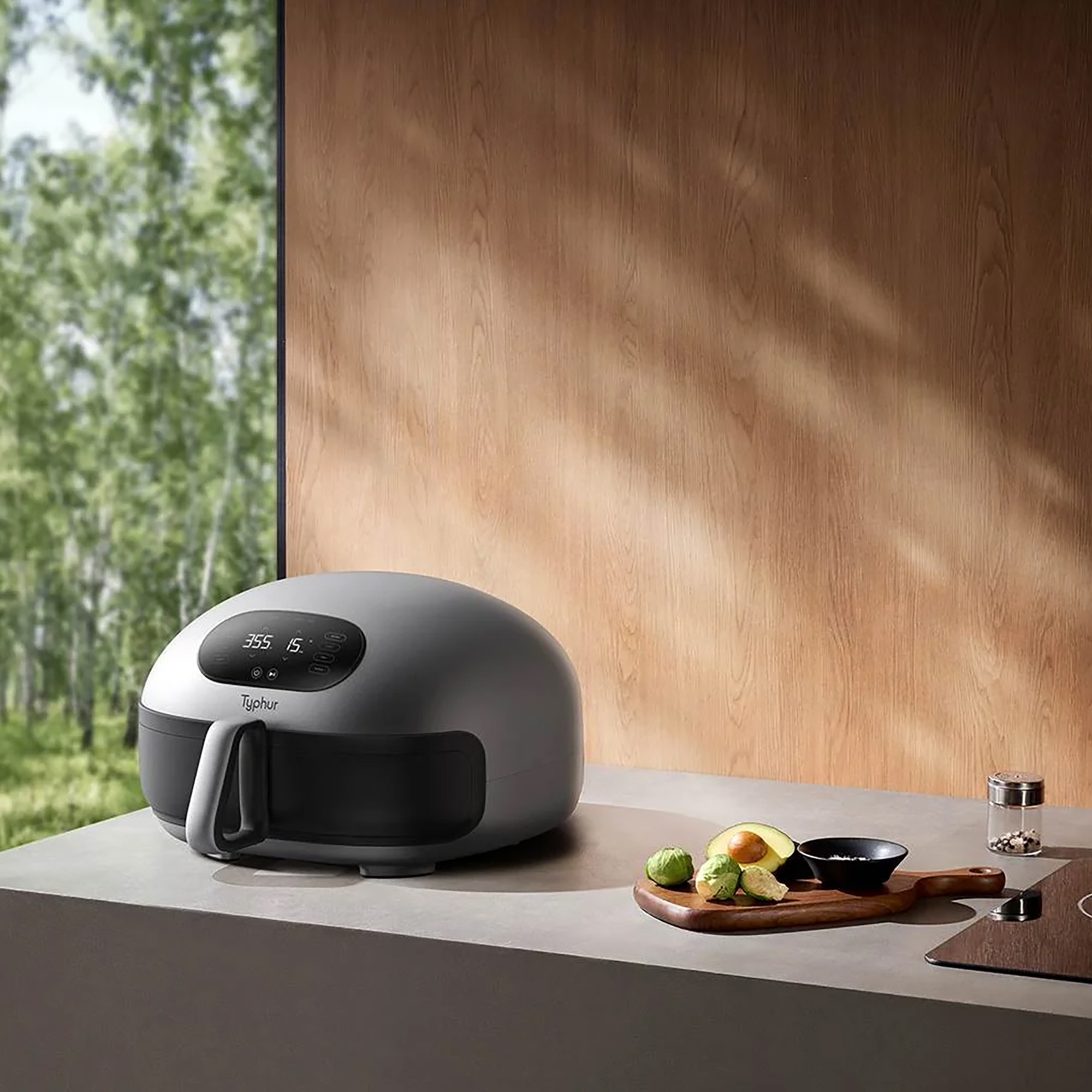 Typhur Dome 2 air fryer review – a glimpse into the future of air frying
Typhur Dome 2 air fryer review – a glimpse into the future of air fryingThe Typhur Dome 2 cooks food brilliantly and has all sorts of benefits, but is it worth the £499 price tag?
By Ellen Manning
-
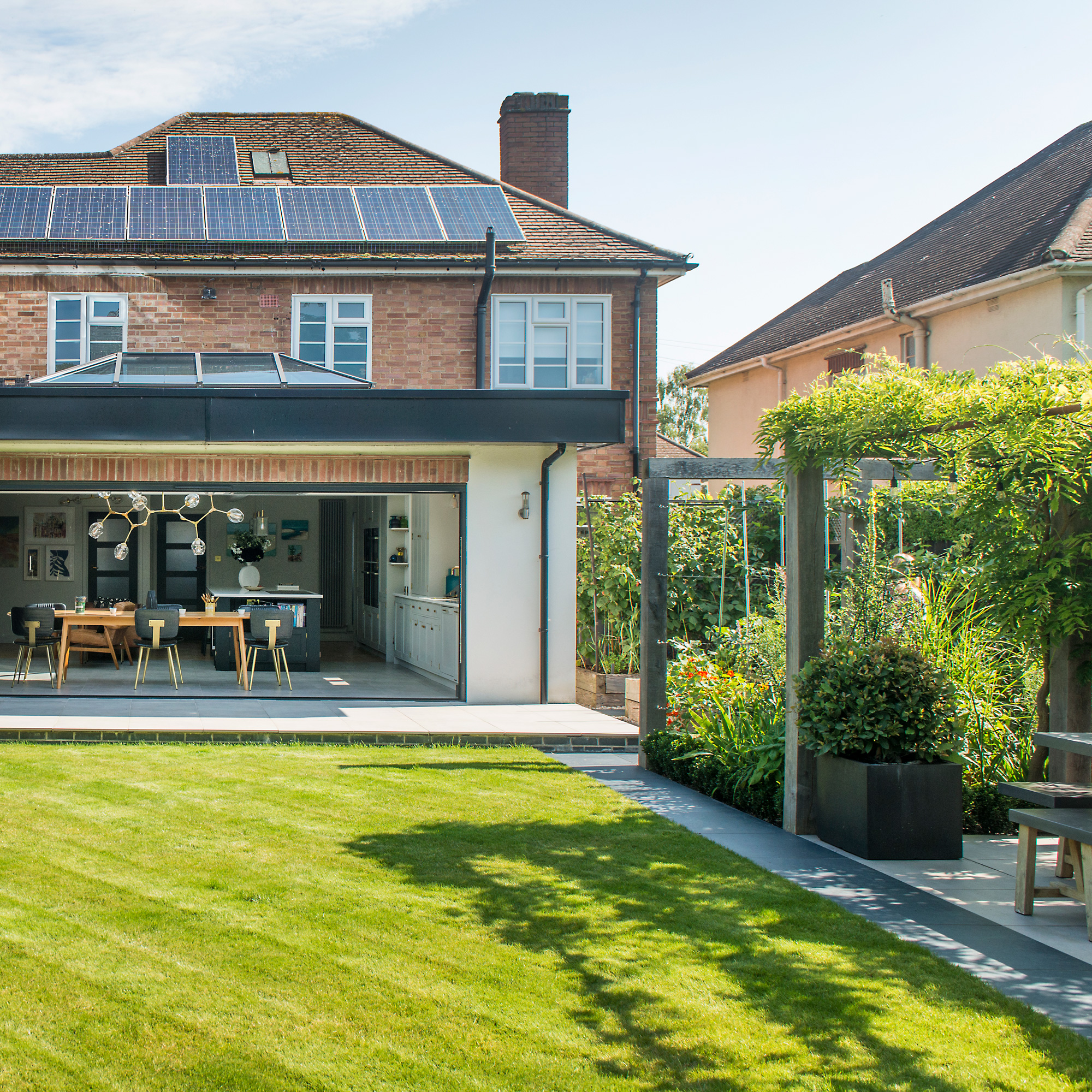 In creating their lush multi-use garden, the owners have cleverly futureproofed the space for years to come
In creating their lush multi-use garden, the owners have cleverly futureproofed the space for years to comeWith a zone for dining, a veg plot, a relaxing sun trap, and space for quiet contemplation
By Ginevra Benedetti
-
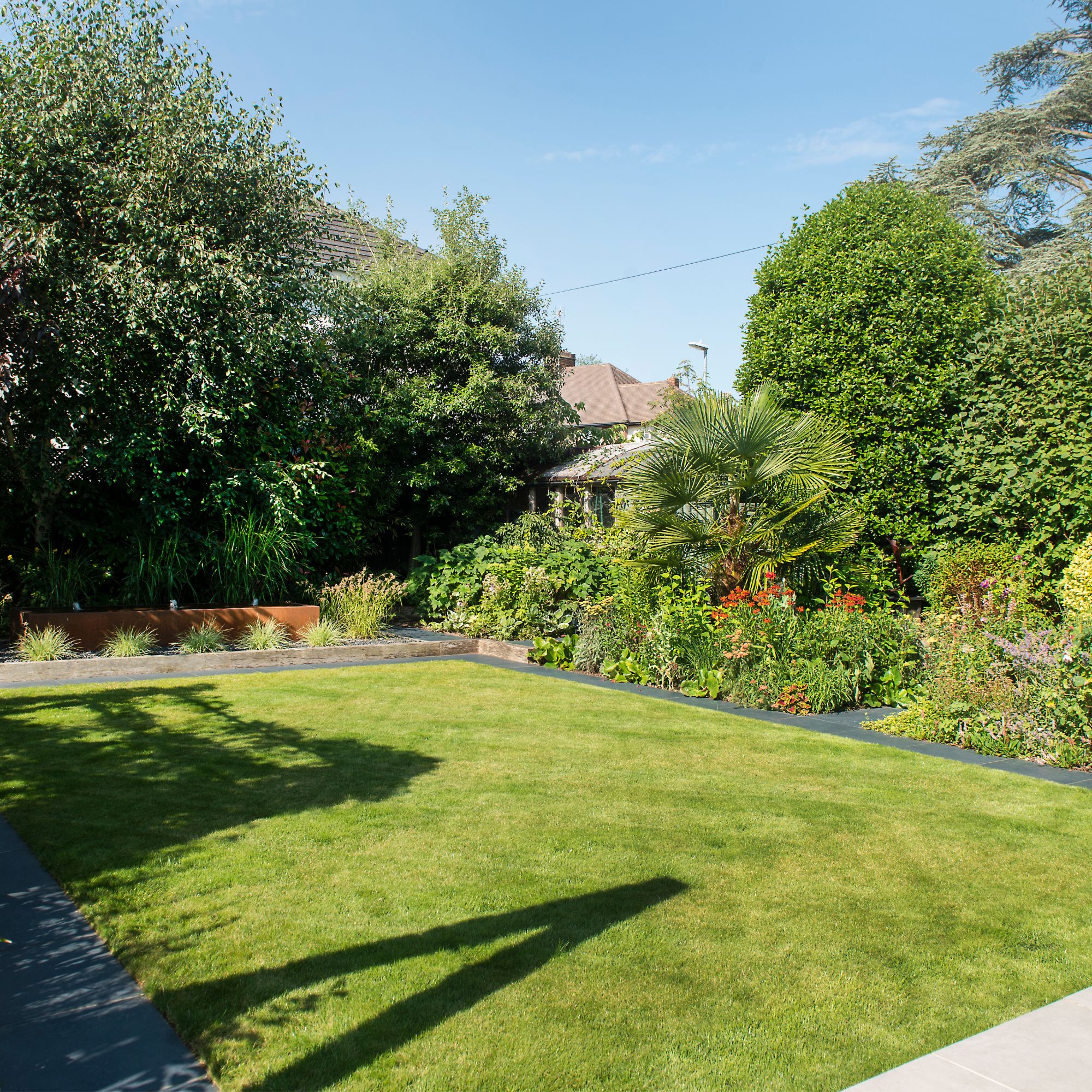 5 reasons why your grass seed isn’t growing and what you can do to help, according to garden experts
5 reasons why your grass seed isn’t growing and what you can do to help, according to garden expertsFor a lush, green lawn, you have to ensure the conditions are just right
By Kezia Reynolds
